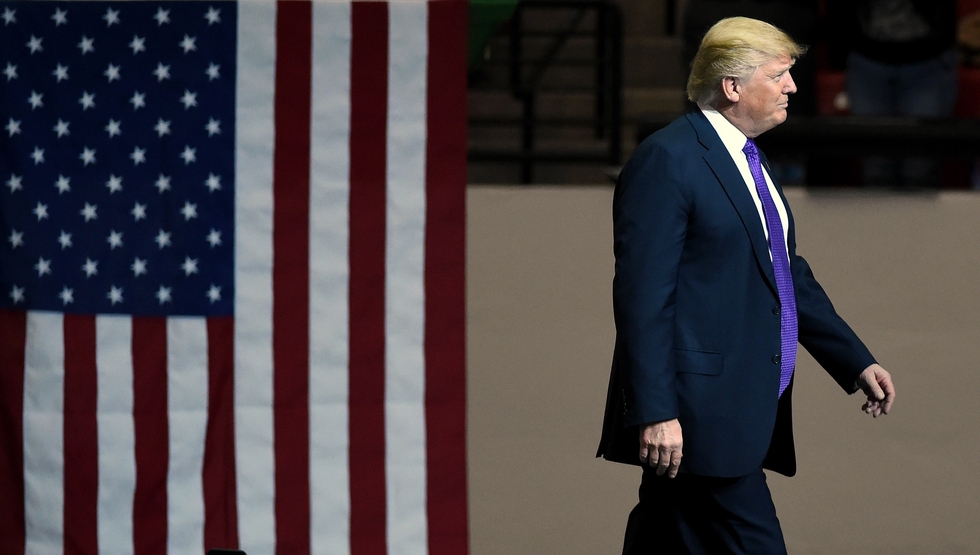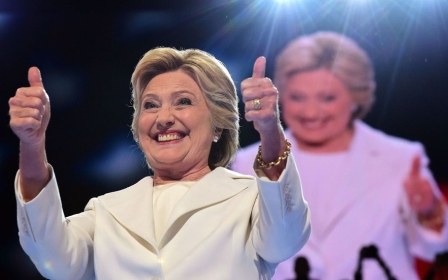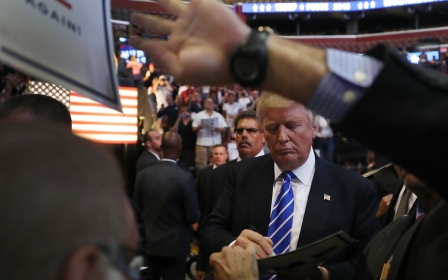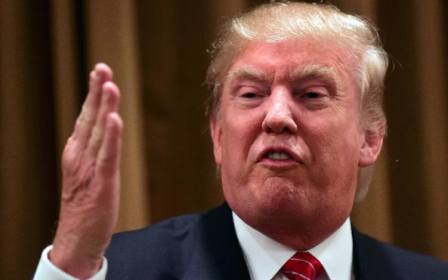Trump reverses NATO stance, doubles down on anti-Muslim rhetoric

Donald Trump on Monday laid out a US blueprint for defeating "global terrorism" in partnership with NATO and Middle East allies, demanding extreme restrictions on immigration and likening the fight to the Cold War.
The Republican nominee, who is tanking in the polls following weeks of self-inflicted disasters, made his pitch to be a security strongman as the Democratic vice president accused him of imperilling the lives of Americans.
"We will defeat radical Islamic terrorism just as we have defeated every threat we faced at every age," said Trump in Ohio, a battleground state considered essential to winning the US presidential election.
His foreign policy address marked the latest attempt by the Trump campaign to get their maverick candidate back on message as his Democratic rival Hillary Clinton surges ahead in the polls.
Trump said a newly adopted approach to fighting the Islamic State (IS) group had led him to change his mind and he no longer considered NATO obsolete.
In a speech in the swing state of Ohio, Trump also said that in implementing his call for a temporary ban on Muslims migrating to the country, he would institute “extreme vetting” and develop a new screening test to try to catch people who intend to do harm to the United States.
"In the Cold War, we had an ideological screening test,” Trump said on Monday. “The time is long overdue to develop a new screening test for the threats we face today. I call it extreme vetting. Our country has enough problems. We don't need more.”
He added that the United States should only allow immigrants who share Western values and respect the American people.
'Commission on radical Islam'
Trump said he would form a new "commission on radical Islam," which will include “reformist voices” from the Muslim community.
“The goal of the commission will be to identify and explain to the American public the core convictions and beliefs of radical Islam, to identify the warning signs of radicalisation, and to expose the networks in our society that support radicalisation,” Trump said.
He added that the committee will be one of his first acts as a president.
The Pentagon announced the transfer of 15 Guantanamo Bay inmates to the United Arab Emirates on Monday.
But at a time when President Barack Obama is trying to close the detention centre, Trump pledged to keep it open.
"Drone strikes will remain part of our strategy, but we will also seek to capture high-value targets to gain needed information to dismantle their organisations," Trump said. "Foreign combatants will be tried in military commissions."
The GOP nominee also vowed to end the era of nation-building.
In November 2015, Trump proposed banning Muslims from entering the United States. Now, he is advocating placing a temporary ban on immigration from countries “compromised by terrorism”.
Rising Islamophobia
Activists worry that Trump’s rhetoric against Muslims is contributing to a hostile environment against the followers of the faith.
On Saturday, an imam and his associate were gunned down near their mosque in Queens, New York. Imam Maulama Akonjee, 55, moved to New York from Bangladesh two years ago, according to US media. Akonjee and his assistant, Thara Uddin, 64, were shot close to the al-Furqan Jame mosque at about 1.50pm on Saturday, the BBC reported.
Local people gathered outside the mosque to mourn and demonstrate against what is seen as a hate crime after the attack.
A New York man, Oscar Morel, of Brooklyn, was charged on Monday with two counts of second-degree murder in the shooting deaths, a police spokesman said.
“That’s not what America is about,” a Queens resident told the NY Daily News after the shooting. “We blame Donald Trump for this ... Trump and his drama has created Islamophobia.”
And in early July, a Muslim optometrist on his way to pray at a Houston, Texas, mosque was ambushed by three people and shot twice outside a nearby apartment complex.
Dr Arslan Tajammul was on his way to 5:30am morning prayers when he was approached by three people on foot, according to KTRK, an ABC television affiliate.
"It is very scary right now given the current political climate," Mohammed Imaduddin, a spokesman for the nearby Madrasah Islamiah mosque, told KTRK. "This is a community place, we have kids that come here; we have people young and old come here."
"These anti-Muslim attacks need to stop. Innocent people are getting hurt," Mufti Mohammed Wasim Khan, a Madrasah Islamiah official, told Al Jazeera.
New MEE newsletter: Jerusalem Dispatch
Sign up to get the latest insights and analysis on Israel-Palestine, alongside Turkey Unpacked and other MEE newsletters
Middle East Eye delivers independent and unrivalled coverage and analysis of the Middle East, North Africa and beyond. To learn more about republishing this content and the associated fees, please fill out this form. More about MEE can be found here.




